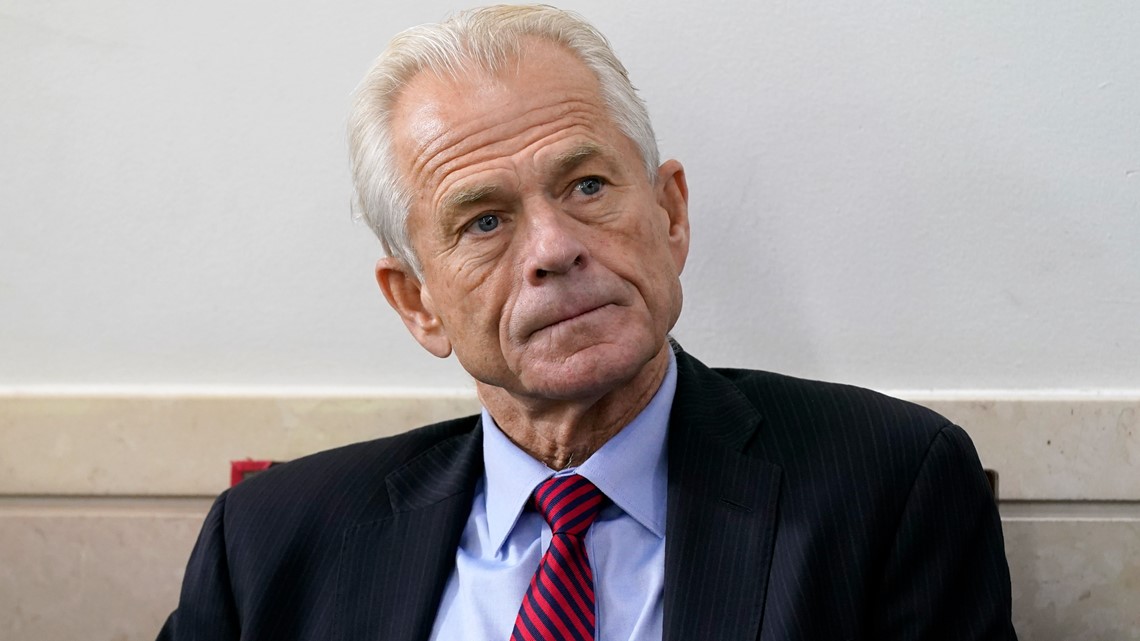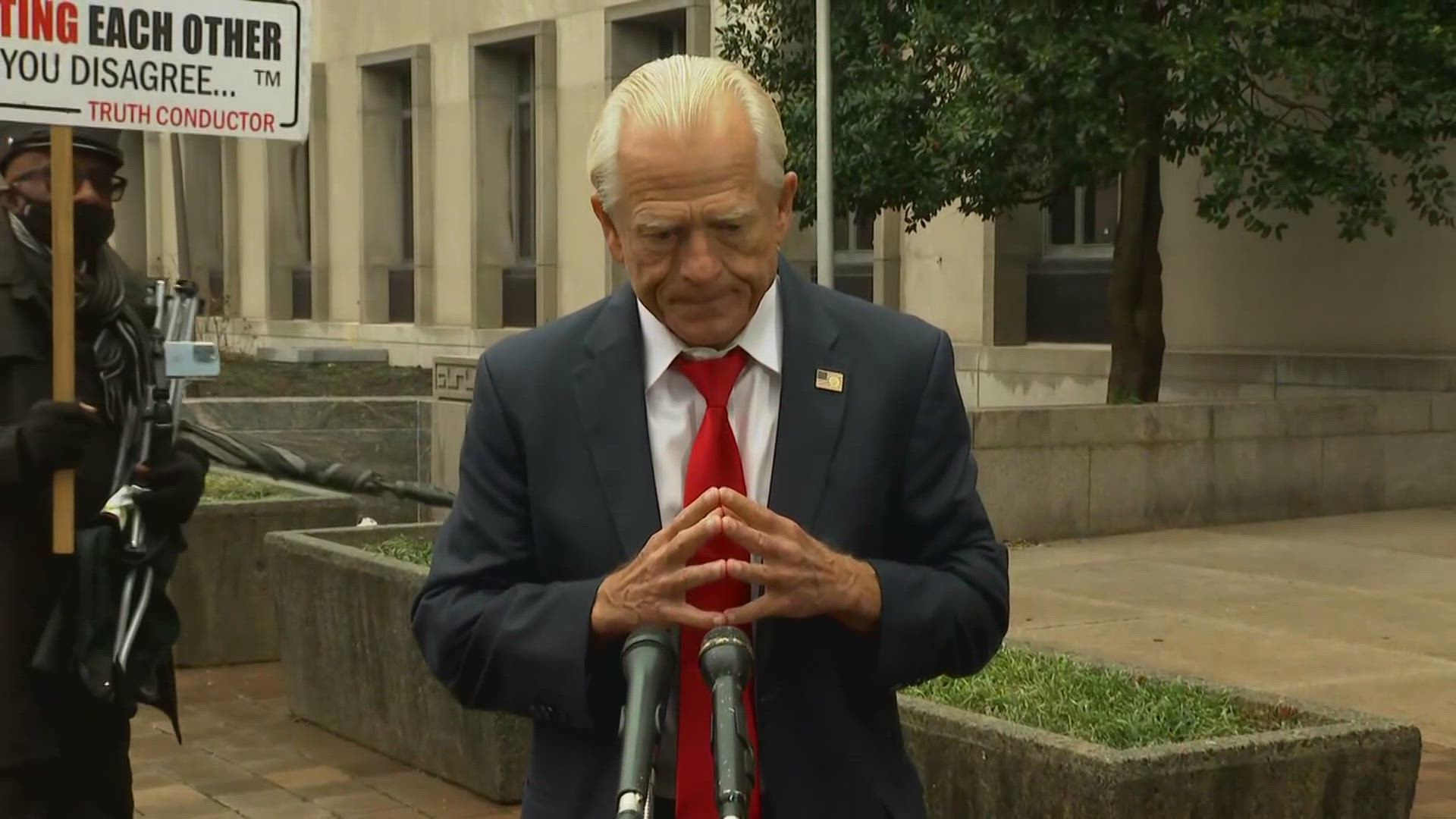WASHINGTON — A federal judge on Thursday ordered former White House trade adviser Peter Navarro to serve four months in jail for defying a congressional subpoena from the January 6th Committee.
Navarro, who was an economic policy adviser and at times political surrogate for former President Donald Trump, was convicted last year of two misdemeanor counts of contempt of Congress. Earlier this month, U.S. District Judge Amit P. Mehta denied his request for a new trial.
Navarro, who refused to provide any documents or sit for a deposition, remained defiant throughout the case — calling the January 6th Committee a “sham committee” and arguing he was protected by executive privilege as a White House adviser. Although Mehta rejected that defense, Navarro’s attorneys said his genuine belief that he was protected by his role as an adviser to Trump should be considered at sentencing.
“Dr. Navarro’s actions do not stem from a disrespect for the law, nor do they stem from any belief that he is above the law,” Navarro’s attorneys wrote in their sentencing memo. “Rather, Dr. Navarro acted because he reasonably believed he was duty-bound to assert executive privilege on former President Trump’s behalf.”
On Thursday, Navarro's attorney, Stanley Woodward, argued he should receive credit for acceptance of responsibility despite going to trial. Mehta rejected that request.
“I haven't heard a word of contrition from Dr. Navarro since this case began," Mehta said.
Mehta repeatedly pushed back on Navarro's arguments that his refusal to engage with the committee hadn't been in bad faith and told Woodward his client likely wouldn't be facing jail time if he he'd sought legal advice.
“Any lawyer worth his salt would have said… we need to engage with Congress and try to figure out what’s covered and what isn’t covered," Mehta said. "That didn’t happen here.”
Mehta ultimately sentenced Navarro to four months behind bars and pay a $9,500 fine. Navarro's attorneys already indicated they intended to appeal.
Federal prosecutors had sought six months in jail and a $200,000 fine for Navarro. In their sentencing memo, they argued he'd “thumbed his nose” at Congress.
“He cloaked his bad-faith strategy of defiance and contempt behind baseless, unfounded invocations of executive privilege and immunity that could not and would never apply to his situation,” prosecutors wrote. “The Committee sought documents and testimony from the Defendant pertinent to a matter of national importance – the circumstances that led to the violent attack on the Capitol on January 6, 2021, and the disruption of the peaceful transfer of power. But the Defendant, like the rioters at the Capitol, put politics, not country, first, and stonewalled Congress’s investigation.”


Navarro was the second former Trump adviser to be charged and convicted with contempt of Congress for refusing to comply with a subpoena from the January 6th Committee. Steve Bannon, Trump’s former campaign manager and White House strategist, was convicted by a jury in 2022 and sentenced to four months in prison. His sentence was stayed pending appeal.
In his book “In Trump Time,” Navarro outlined how he and Bannon were part of a strategy to overturn the 2020 presidential election dubbed “the Green Bay Sweep” which called for supportive Republican members of Congress to repeatedly object to certifying slates of electors. Navarro received a subpoena in February 2022 from the January 6th Committee seeking ten categories of documents and testimony about his involvement in the plan, but Navarro declined to turn over any materials and did not appear for his deposition. The House of Representatives voted to hold him in contempt of Congress in April 2022 and he was indicted by a federal grand jury two months later.
Contempt of Congress, the statute under which both Navarro and Bannon were convicted, is unusual among federal misdemeanors in that it carries a mandatory minimum sentence of 30 days in jail. However, Navarro’s attorneys said he should instead receive a sentence of six months of probation – arguing that the “common jail” mentioned in the law refers to a facility in D.C. that no longer exists.

